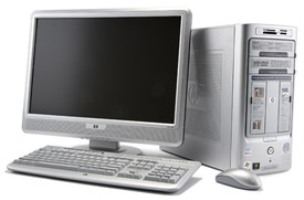PC Slump Continues After Weak Windows 8 Impact

Windows 8 hasn’t saved the PC market from tanking during the all important Christmas holiday sales season
The arrival of Microsoft’s new operating system, Windows 8, has so far not proved to be the saviour that the collective PC industry was holding its breath for.
This is according to recent figures on the state of the PC market from analyst house IDC, which reported another dismal period for PC makers, despite the quarter falling amid the Christmas holiday sales season.
PC Slump
The IDC Worldwide Quarterly PC Tracker figures made for more depressing reading among executives at all the major chip and PC makers. It showed that worldwide PC shipments totalled 89.8 million units in the fourth quarter of 2012 (4Q12). On the surface the figure sounds reasonable, but actually this number is down a staggering 6.4 percent compared to the same year ago quarter.
And just to add to the depression, the 6.4 percent decline was actually worse than the forecast decline of 4.4 percent.
So what is being blamed for the ongoing PC slump?
 Well most people are well aware of the ongoing cannibalising of global PC sales thanks to the deadly combination of punches delivered compliments of the ongoing economic downturn, tablets and smartphones. But the real sucker punch in this quarter has come from an unexpected quarter, namely Microsoft’s Windows 8. This was the newly released operating system that many had fervently hoped would be the PC industry’s white knight, but which hasn’t proved so enticing.
Well most people are well aware of the ongoing cannibalising of global PC sales thanks to the deadly combination of punches delivered compliments of the ongoing economic downturn, tablets and smartphones. But the real sucker punch in this quarter has come from an unexpected quarter, namely Microsoft’s Windows 8. This was the newly released operating system that many had fervently hoped would be the PC industry’s white knight, but which hasn’t proved so enticing.
But IDC did offer a glimmer of hope. It admitted that the quarter marked the beginning of a new stage in the PC industry with the launch of Windows 8, but it said its impact did not quickly change sluggish PC demand, especially in what should have been a bright period thanks to the Christmas shopping window.
“As a result, the fourth quarter of 2012 marked the first time in more than five years that the PC market has seen a year-on-year decline during the holiday season,” said IDC.
“Although the third quarter was focused on the clearing of Windows 7 inventory, preliminary research indicates the clearance did not significantly boost the uptake of Windows 8 systems in Q4,” said Jay Chou, senior research analyst with IDC’s Worldwide Quarterly PC Tracker.
“Lost in the shuffle to promote a touch-centric PC, vendors have not forcefully stressed other features that promote a more secure, reliable and efficient user experience,” said Chou. “As Windows 8 matures, and other corresponding variables such as Ultrabook pricing continue to drop, hopefully the PC market can see a reset in both messaging and demand in 2013.”
Worryingly, the US market showed real weakness during the quarter.
“As anticipated, the US market had a rough ending, dropping 4.5 percent in the fourth quarter and contributing to a decline of 7 percent for the full year 2012,” said David Daoud, research director, IDC US Quarterly PC Tracker.
The EMEA market figures also reflected consumer demand for tablets and smartphones over traditional desktops, laptops, and even ultra slim devices such as Ultrabooks. Japan saw modest growth below market forecasts, and PC shipments in the Asia Pacific region as a whole also came in below expectations.
Winners and Losers
HP defended its top position, with a 16.7 percent market share in the fourth quarter, with growth down 0.6 percent from the year ago quarter.
Lenovo took the number two spot with a 15.7 percent share, with growth up 8.2 percent.
Dell was third (10.6 percent and growth was down 20.8 percent), followed by Acer (7.8 percent with growth down 28.2 percent) and ASUS with 7.2 percent (with growth up 5.6 percent)
Looking forward the industry is hoping that Windows 8 will encourage more consumers and enterprises to start their PC refresh.
Earlier this week Microsoft said that it had sold 60 million copies of the new OS so far, although experts warn the picture is not uncertain at the moment, because it’s not clear how many of the 60 million copies are sitting in the channel rather than out and live on people’s machines.
And the ongoing problem posed by tablets and smartphones is not going away either, despite the industry’s attempts to counter with its range of ultraslim and transformative PCs.
How well do you know your operating systems? Take our quiz.